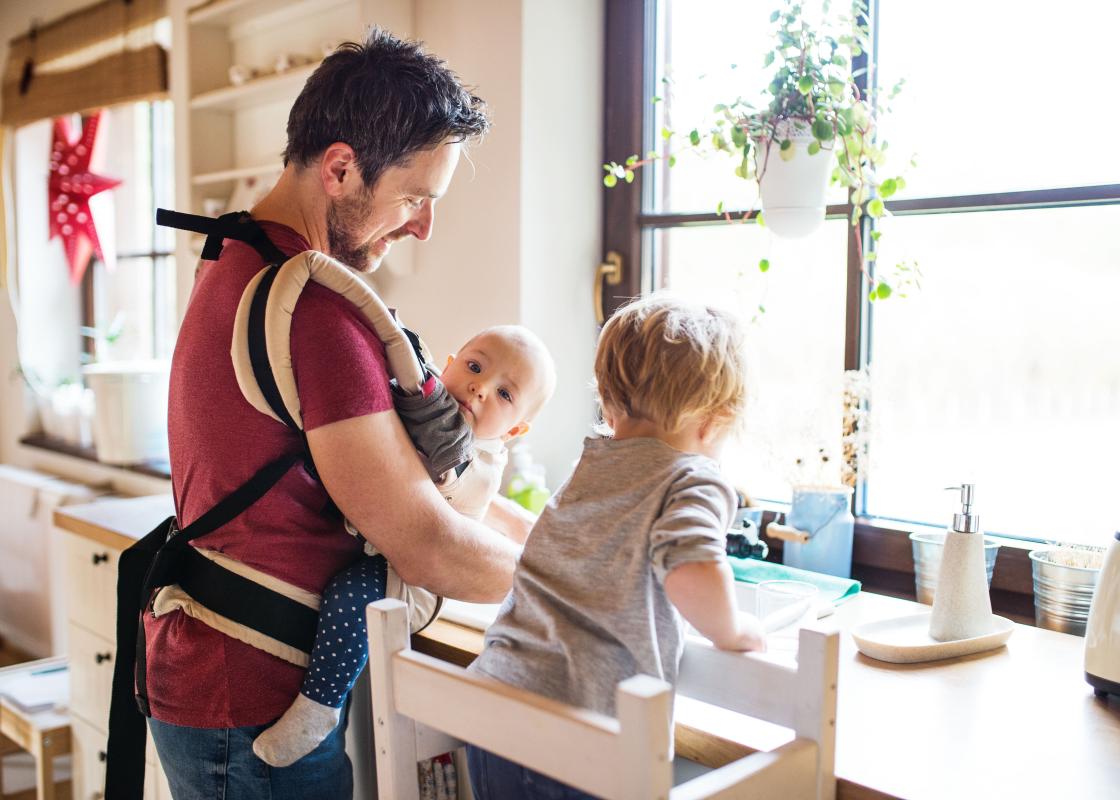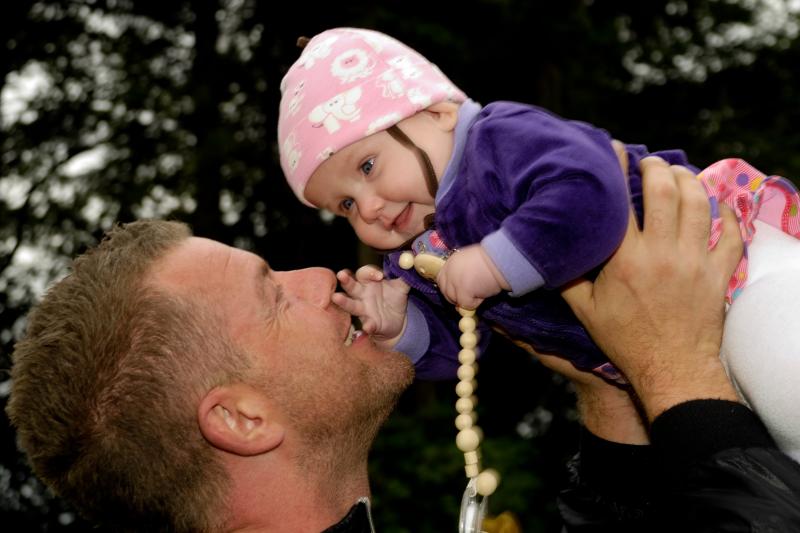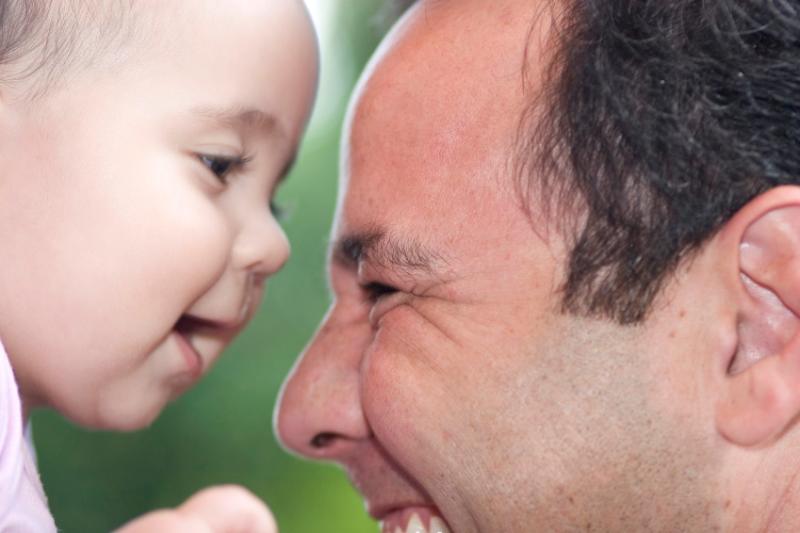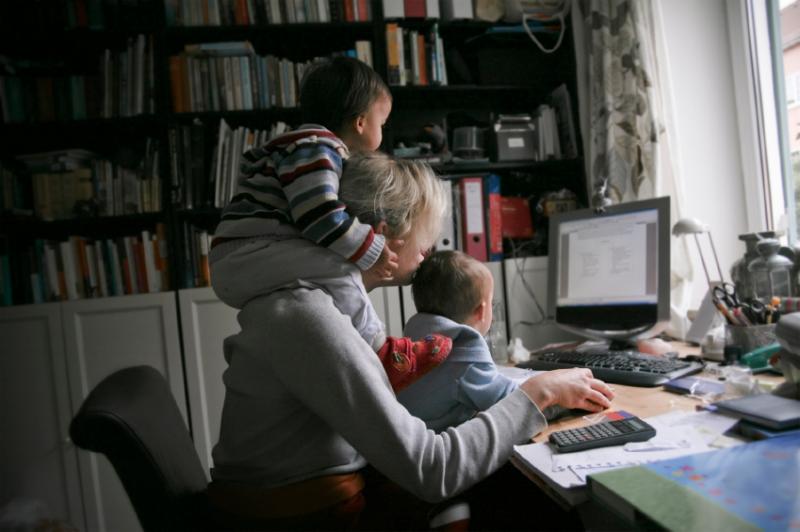When paternity leave was introduced by Gro Harlem Brundtland's government in 1993, Norway was the first country in the world to reserve part of parental leave for fathers.
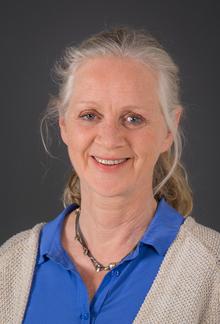
At that time, the father's share of parental leave amounted to four weeks. Since then, parental leave and paternity leave have both been increased a number of times. Most recently in 2018, when paternity leave amounted to 15 weeks. The same number of weeks are reserved for mothers, and 16 weeks can be shared freely between parents. The latest increase in 2018 generated a great deal of debate and provided fertile ground for the "parental-leave showdown", which garnered strong support on social media:
"Many considered the shared portion of parental leave to be the mother's, so a lot of mothers felt they were being deprived of their part of the leave," says Ragni Hege Kitterød, a researcher at the Institute for Social Research.
Kitterød explains that those who opposed the new arrangement often used biological arguments and believed it was detrimental to the mother's recovery after childbirth and the opportunity for her to breastfeed as long as she would like.”
"Those who supported the new arrangement highlighted that increasing the father’s share of leave would help nurture a stronger bond between father and child, and also the fact that both mothers and fathers are caregivers should be visible in working life.”
Kitterød points out, however, that it was mothers in particular who were most active in the debate: "We didn't hear very much from the fathers.”
The study "Mild coercion, broad support: An analysis of attitudes towards sharing parental leave among fathers and mothers" was conducted by Miriam Evensen, Ragni Hege Kitterød and Mari Teigen at the Institute for Social Research
It is based on data from CORE SURVEY 2022.
About the study
Kitterød and her colleagues at the Institute for Social Research, Mariam Evensen and Mari Teigen, wanted to investigate mothers’ and fathers' attitudes towards different models of shared parental leave.
"We wanted to find out whether mothers and fathers have different perceptions about sharing parental leave, and we wanted to look specifically at the variation among fathers, who’ve participated less than mothers in the public debate about the length of paternity leave," she says.
The survey shows strong support among women and men for a portion of parental leave being reserved for fathers, but more fathers than mothers want a shared parental leave system.
"In that sense, men are more oriented towards gender equality than women when it comes to sharing parental leave.”
The Gender Equality Survey
The study by Kitterød and her colleagues was based on a large survey that examined society’s attitudes towards gender equality, the CORE SURVEY 2022 – the gender equality survey. They wanted to investigate attitudes to sharing parental leave among adults with children living at home.
"Previous research on attitudes towards paternity leave has been carried out among parents with quite young children.”
To broaden the scope of the research, the researchers selected about 1,000 respondents to the survey, aged 20–59 years old with children under the age of 20 living at home.
Kitterød explains that they wanted to pose a more general question about sharing parental leave than was used in previous research:
"The previous research often refers to the current parental leave system in the actual question, and quite a lot of the respondents express preferences in line with that.”
So, the researchers framed the question in a slightly different way.
"We asked what proportion of parental leave the respondent believes should be reserved for fathers – about half, about a third, less than a third, or no share for the father," Kitterød explains.
Men more oriented towards gender equality
The survey showed that, when it comes to sharing parental leave, men are arguably more oriented towards gender equality than women.
"We found that the current three-part parental leave had a lot of support from both women and men. About 1/3 support the current system, but far higher number of fathers would like parental leave divided equally among parents. Our analysis shows that 24 percent of fathers would like to see half of parental leave reserved for fathers, compared to just 10 per cent of mothers.”
Furthermore, the figures show that about 1/3 of women and 15 per cent of men would like fathers to have less than a third of parental leave.
Kitterød and her colleagues were particularly interested in looking at the variations in fathers' attitudes to leave. Among other things, they found that fathers with older children were more positive to sharing parental leave equally, while fathers with younger children preferred the three-part parental leave system.
"For those with children soon entering the toddler phase, this is likely a practical and material matter. Fathers with older children who are far beyond the toddler phase may consider this more a matter of gender equality.”
Attitudes towards gender equality
Men and women who wanted to share parental leave more equally were generally more positive to gender equality.
"We found that the more one supports gender equality, the more one supports three-part or equally sharing parental leave.”
The researchers also investigated the relationship between attitudes to the father's share of leave and the attitude that there are biological differences between men and women.
"The more one supports the fact that women and men are different by nature, the less positive one is to one half or one third of parental leave being reserved for fathers.”
The debate about the father's share of parental leave differs from other gender equality issues.
Attitudes towards sharing parental leave are perhaps an exception to the rule:
"We normally find that women are more oriented towards gender equality than men, but when it comes to parental leave, we see that men are more supportive than women of three-part or an equal division of parental leave.”

Cultural change
Knut Oftung, a senior advisor at the Equality and Anti-discrimination Ombud, believes that strong support among fathers for sharing parental leave demonstrates that the scheme has been a successful gender equality policy.
"The whole point of paternity leave was to create a cultural change by changing fathers' practical opportunities to care for their children. The attitudes that emerge from the survey suggest that such a change has taken place," says Oftung.
Oftung believes that when paternity leave was introduced 30 years ago, the male culture was quite different.
"Back then, the idea of men being caregivers for very young children was almost unthinkable. It was considered almost irresponsible to let men take care of such young children. That has changed radically," he says.
As it stands now, paternity leave is quickly becoming a residual category that fluctuates based on a debate about the mothers' needs.
Oftung believes that this cultural change stems from the introduction of paternity leave.
"I believe this change stems from fathers actually being given access to the caregiving arena. That has generated new expectations and a desire to help provide intimate care for children.”
We need to focus more on men
Oftung believes that the mothers' need for recovery and to spend time with their children has been given a lot of attention in the public sphere. Although it is an important and legitimate debate, less attention is given to what men need to be good fathers.
"There are a lot of established norms for mothers and the time they spend with their children, such as how long they should breastfeed their kids. There is, however, no evidence-based conception of what men need to be good fathers.”
“The needs of fathers' are often seen in relation to the mothers' needs,” he adds.
"I'm not saying we shouldn't discuss the needs of mothers. But we also need to discuss the fathers' needs and provide an evidence-based basis for the amount of time fathers actually need to spend with their children in order to bond properly.”
"As it stands now, paternity leave is quickly becoming a residual category based on a debate about mothers' needs. My point is that we also need to discuss and work out the right duration for paternity leave based on fathers' own independent needs.”
Paternity leave is quickly becoming a residual category based on a debate about mothers' needs.
"Why do you think that women generally support gender equality more than men?"
"Gender equality is often understood as something that benefits women, but if a greater number of gender equality measures were put in place for men, I think there would be a change in attitudes .”
"For example, if more measures were put in place for boys struggling at school, or if more mental healthcare services were established for men, then it’s likely that more men would be positive to gender equality.”
"It’s also important to remember that gender equality has had a liberating and positive impact on men. Just consider men's relationships with their own children and the quality of life they enjoy from spending more time with their kids. Or seeing their own daughter, who is good at math, start her engineering degree and working with what she’s passionate about.”
The way forward
Oftung and Kitterød would like to see more research carried out on men and women's attitudes towards gender equality.
Kitterød is trying to gain a better understanding of why men and women respond as they do in surveys on gender equality.
"Qualitative studies will provide a better understanding of how women and men understand gender equality, and what they consider important when answering questions about attitudes towards gender equality in different areas of life," says Kitterød.
It is also important to explore in more detail how attitudes to gender equality in different areas of life are connected.
Oftung is calling for more research into how workplaces provide for parental leave and fathers' opportunities to take responsibility at home.
"I would like for us to learn more about the opportunities men have to negotiate at work in terms of adaptations for family life. Certain work cultures, in occupations that are traditionally male dominated, entirely prevent fathers from making modern choices in family life. That makes it difficult for men to share in the benefits that family life brings and to take on responsibilities at home.”
This article is a translated from Norwegian. The original article was published on November 24th.
